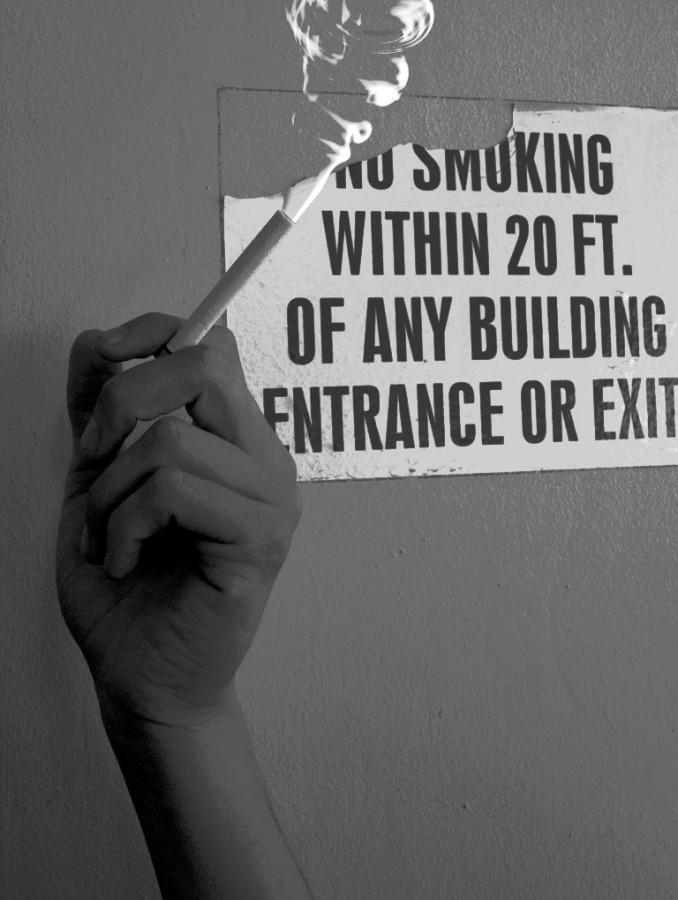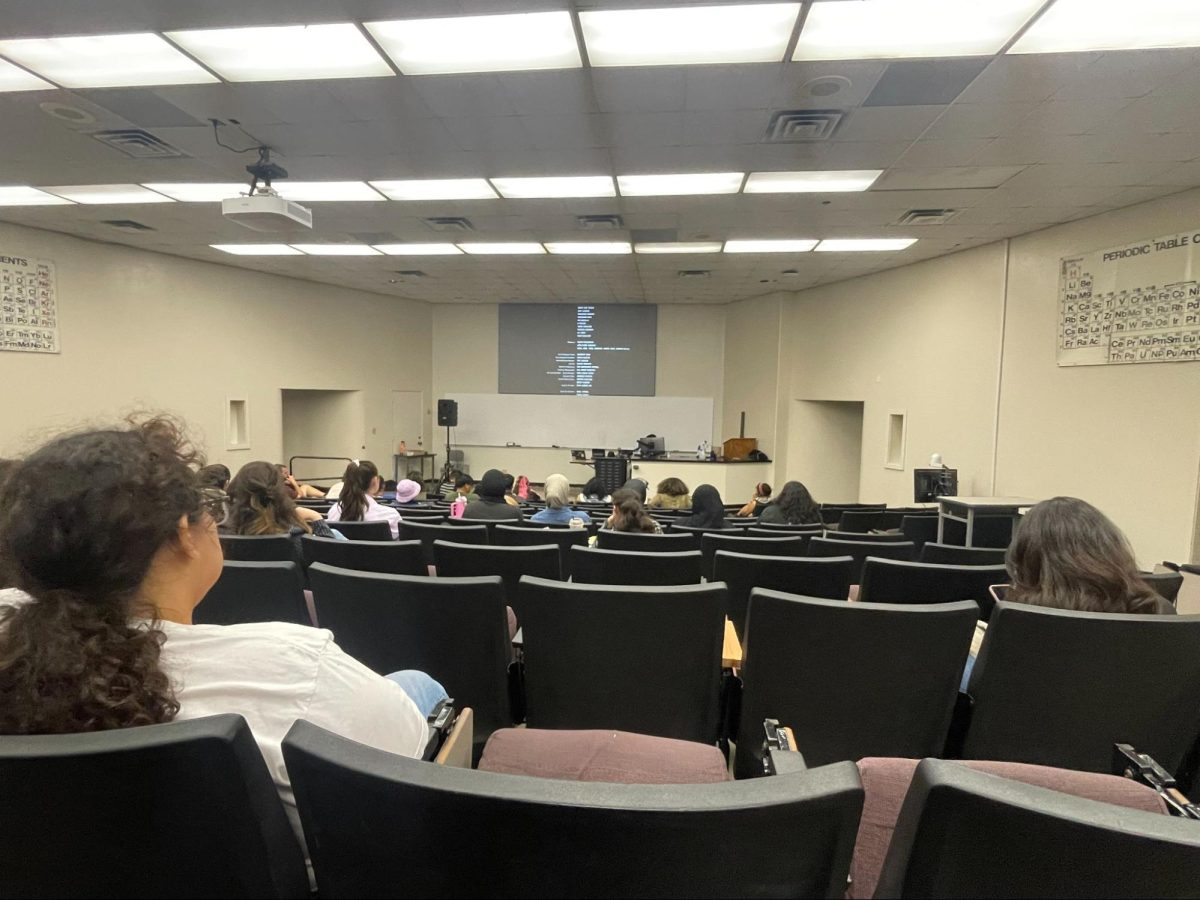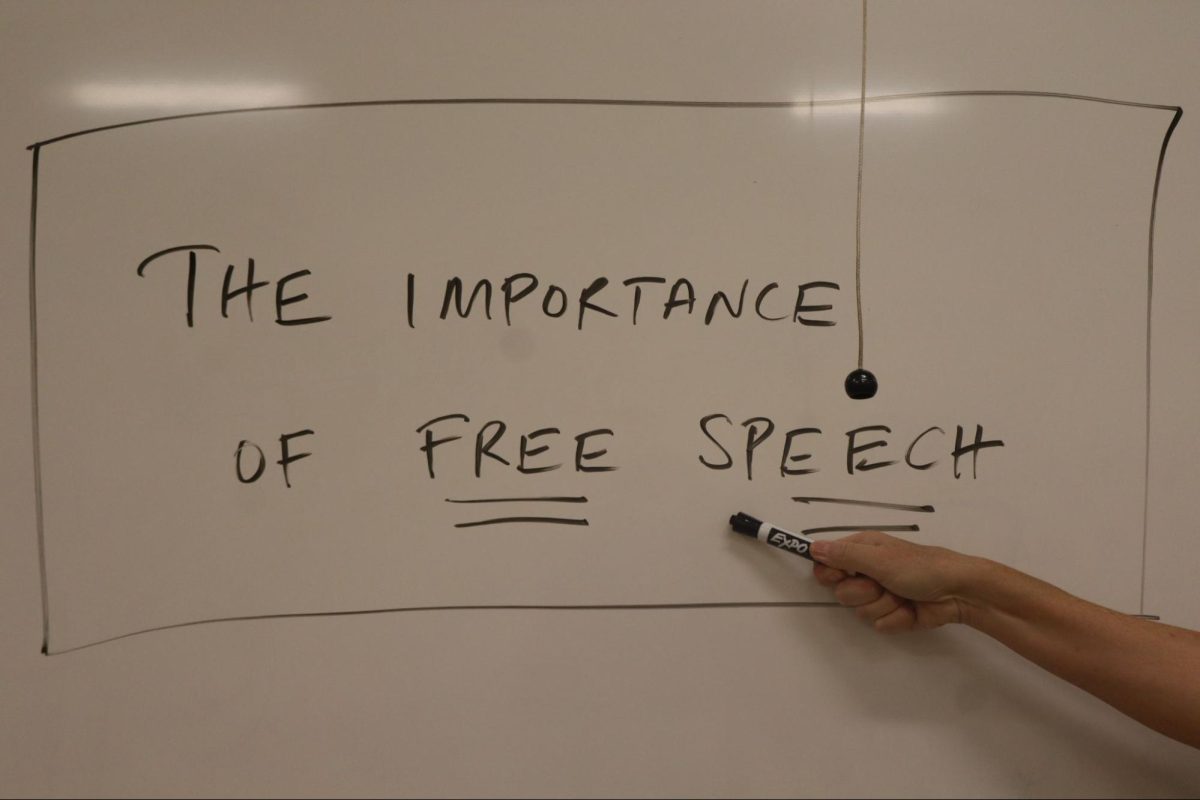Following the lead of the University of California system to make all its campuses smoke-free by 2014, the Associated Student Government at Fresno City College is pushing the creation of designated smoking areas on campus by the spring or fall semester of 2013.
Along with a few proactive students, the leadership of the student body has started work on an action plan that would prohibit smoking outside the designated areas on campus once they’ve been instituted or identified.
Right now the plan proposes four designated smoking areas including two in the University Mall by the fountains, one near the Free Speech area and one near the health science building.
“We want to make it so it’s easy for administrators and faculty members to be able to go out and have their smoke break and then be able to get to class on time,” said ASG Sen. Monique Reyna. “And students as well.”
FCC students and staff are currently allowed to smoke anywhere on campus as long as they are at least 20 feet away from the main entrance or exit, operable windows and vents, according to Assembly Bill (AB 846) that has been into effect since Jan. 1, 2004, unless the school has its own policy prohibiting smoking. FCC does not have that policy yet.
However, the Diversity Club members took measurements on Sept. 10 and found that most areas that were proposed do not meet the AB 846 requirement.
“We’ve found pretty much all the places that they were looking at are not within 20 feet,” said Kayleia Southard, treasurer of the Diversity Club. “So, even if we did them, we would have to turn around and make sure later on they are in compliance. If we don’t, we would have lawsuits against the campus police,”
ASG first attempted to establish a limited smoking area on campus was in 2004 when an item on the election ballots asked students to choose between three options – a) leaving the smoking policy the way it was; b) making FCC a smoke-free campus or 3) creating designated smoking areas on campus. However, the ASG has not taken any further action that time.
In 2010 in order to reaffirm the results, the ASG included the same survey on the election ballot. According to Sen. Reyna, about 36 percent of FCC students voted to establish designated smoking areas.
“I think it’s rather gross to smoke here on campus because people throw their butts everywhere and then people can walk on them, and animals can get a hold of it,” said FCC nursing student Alexandra Chenot. “So, it’s really gross and probably shouldn’t be anywhere around campus. So, certain little [designated smoking] area would be nice.”
However, before the policy can become final, the proposal has to be approved by several bodies on campus, including the Facilities Committee, the Classified Senate, the Academic Senate and the President’s Cabinet. ASG has created a special committee and subcommittee, which have been working with interested students to develop an action plan.
If the proposal passes, the new policy cannot be implemented unless the campus is prepared for it. The college will have to fund and place ashtrays, benches and new signs in the designated smoking areas as well as update course catalogs and class schedules with whatever new rules are in place.
“It could take a few thousands just to get things going,” student activist Leon Velasco said. He added that penalties to those smoking outside the designated smoking areas would most likely absorb all the expenses. AB 795 allows community colleges to set their own fees as long as those fines are no more than $200 per individual offence.
Students and staff, who honor the proposed policy if it passes, might get positive reinforcements. According to Reyna, ASG is planning on giving iTunes gift cards to those who follow the rules and use designated smoking areas.
“It rewards them, it creates a habit, and it’s a positive reinforcement,” she said.
The designated smoking areas action plan will be presented to the Facilities Committee on Sept. 20.
“If the plan gets approved and moved to the next step, the new policy might be put in place by next spring or the fall semester,” said Reyna. “And if it gets rejected, then it just depends on how many times it gets us to update it and redo it in order for them to approve it.”







